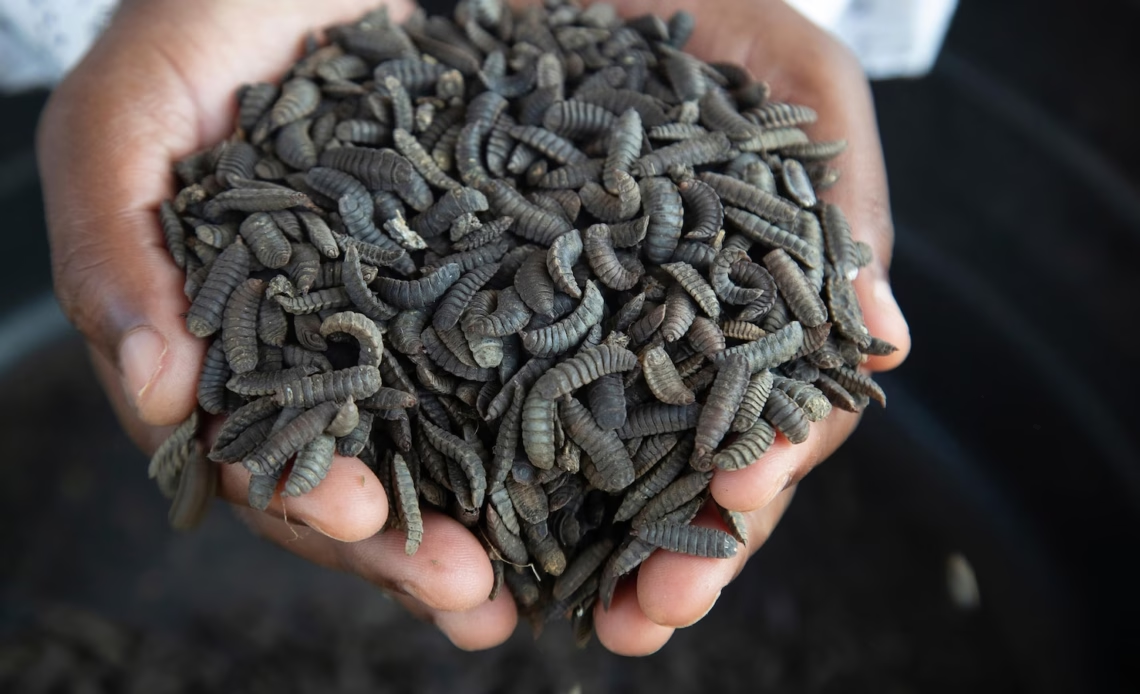NYANGAMBE, Zimbabwe — At first, the suggestion to try farming maggots spooked Mari Choumumba and other farmers in Nyangambe, a region in southeastern Zimbabwe where drought wiped out the staple crop of corn.
After multiple cholera outbreaks in the southern African nation resulting from extreme weather and poor sanitation, flies were largely seen as something to exterminate, not breed.
“We were alarmed,” Choumumba said, recalling a community meeting where experts from the government and the United States Agency for International Development, or USAID, broached the idea.
People had flocked to the gathering in hope of news about food aid. But many stepped back when told it was about training on farming maggots for animal feed and garden manure.
“People were like, ‘What? These are flies, flies bring cholera’,” Choumumba said.
A year later, the 54-year-old walks with a smile to a smelly cement pit covered by wire mesh where she feeds rotting waste to maggots — her new meal ticket.
After harvesting the insects about once a month, Choumumba turns them into protein-rich feed for her free-range chickens that she eats and sells.
Up to 80% of chicken production costs were gobbled up by feed for rural farmers before they took up maggot farming. Many couldn’t afford the $35 charged by stores for a 50-kilogram (about 110-pound) bag of poultry feed, said Francis Makura, a specialist with a USAID program aimed at broadening revenue streams for farmers affected by climate change.
But maggot farming reduces production costs by about 40%, he said.
The maggots are offspring of the black soldier fly, which originates in tropical South America. Unlike the house fly, it is not known to spread disease.
Their life cycle lasts just weeks, and they lay between 500 and 900 eggs. The larvae devour decaying organic items — from rotting fruit and vegetables to kitchen scraps and animal manure — and turn them into a rich protein source for livestock.
“It is even better than the crude protein we get from soya,” said Robert Musundire, a professor specializing in agricultural science and entomology at Chinhoyi University of Technology in Zimbabwe, which breeds the insects and helps farmers with breeding skills.
Donors and governments have pushed for more black soldier fly maggot farming in Africa because of its low labor and production costs and huge benefits to agriculture, the continent’s mainstay that is under pressure from climate change and Russia’s war in Ukraine.
Click Here to Read the Full Original Article at ABC News: Business…

